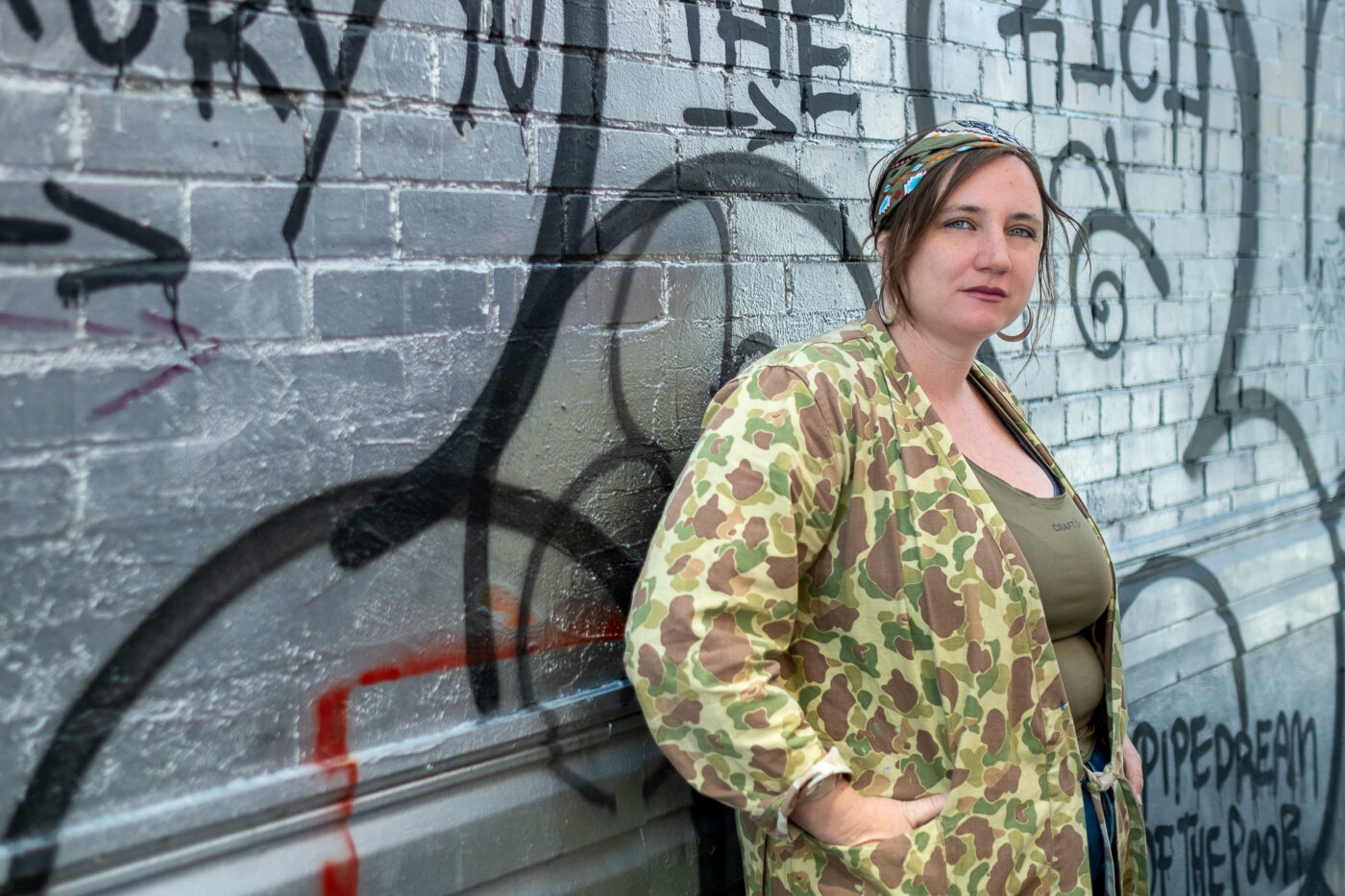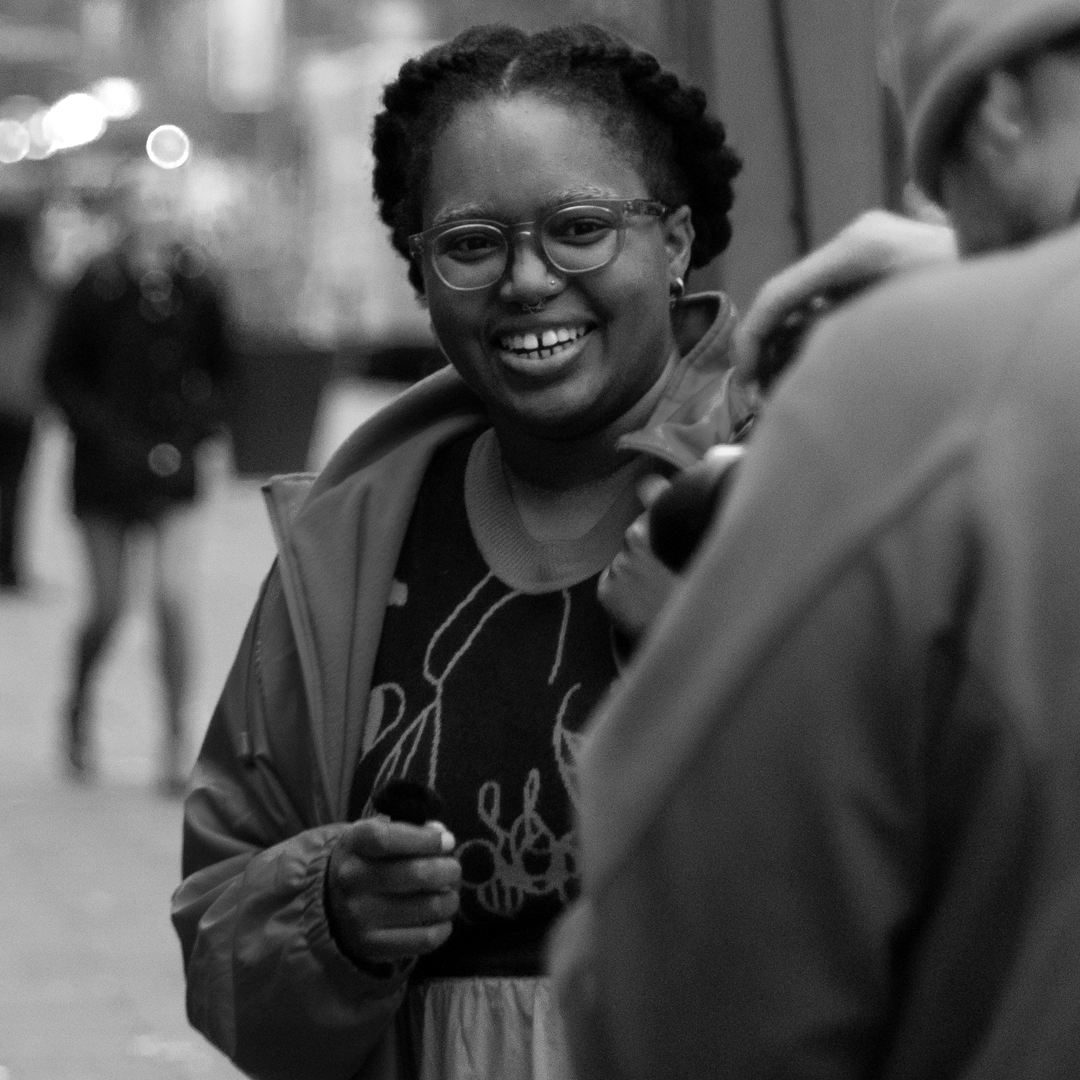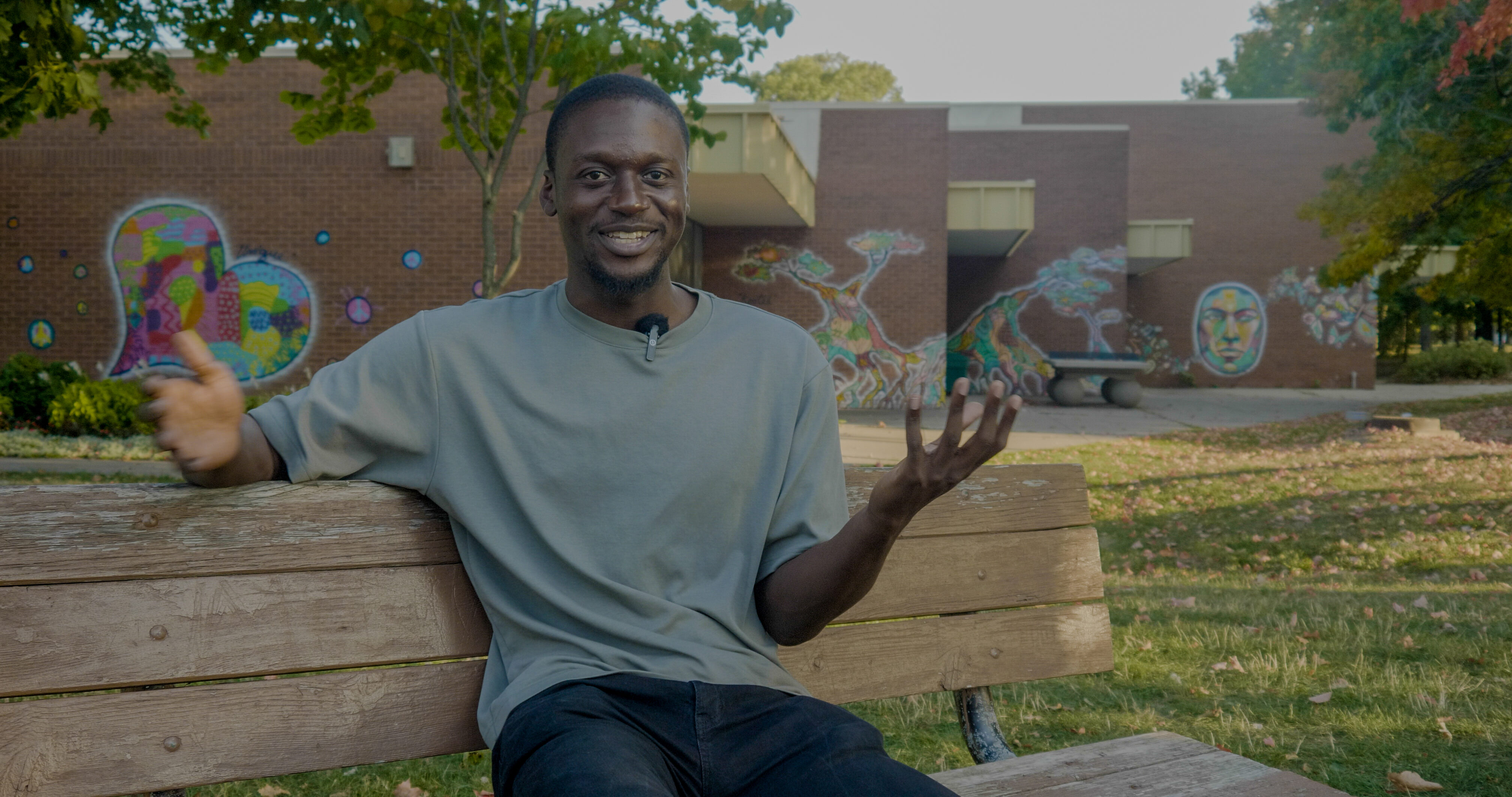THE GREEN LINE'S
CHANGEMAKER INTERVIEW
The reality of being queer in the trades with Megan Kinch
For our July 2024 Changemaker newsletter, we spoke with Megan Kinch, an electrician and writer combining the two careers to advocate for the rights of LGBTQ2SIA+, racialized people and women in the trades.

Megan Kinch leaning on a wall of graffiti.
📸: PASQUALINE LE BRAS.

Adele Lukusa
Graduate of Toronto Metropolitan University and Kitchener native living in Riverdale. Enamoured with all things arts and culture. Journalist and avid zinester who loves criticism, but loves iced tea more.
June 3, 2024
Megan Kinch has ping-ponged between the trades and the writing world her entire adult life.
Going from high school newspaper editor to the army, from freelance journalist to full-time electrician — it was never either or for her. Megan’s career path has always been a seesaw: working in the trades to support her writing career, and writing as a refuge from her labour-intensive day job.
She’s always been interested and involved in labour advocacy and the lives of working-class people, but it wasn’t until 2017 that she decided to bridge her two careers. Now, you can find several poignant and nuanced personal essays and reported features on the many lives of Torontonian tradesworkers — most recently of course, on our website, written with the help of data journalist Kaitlyn Smith.
Megan and Kaitlyn are, if anything, an ode to the power of working-class journalists. When writers are given the chance to write not only about what they care about but what they know, the often neglected and unexpected stories of our city can emerge. I hope this interview sheds some light on Megan’s process and life in the trades.
|
|
|
|
|
|
|
|
|
|
|
|
|
Fact-Check Yourself
Sources and
further reading
Don't take our word for it —
check our sources for yourself.
Care about our city, but don't know how to make it better? Sign up for simple, step-by-step guides to solving problems in your neighbourhood — one small action at a time.
